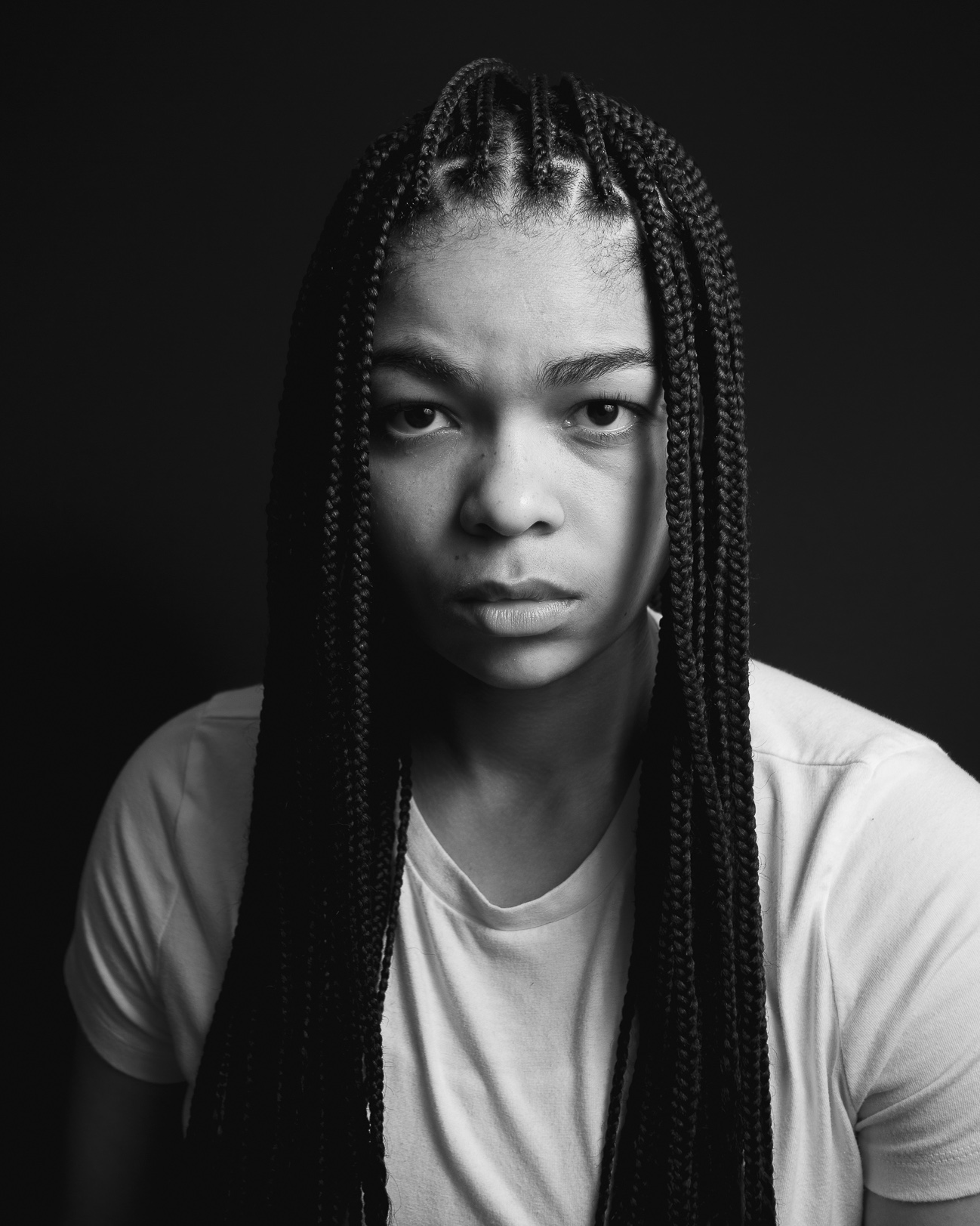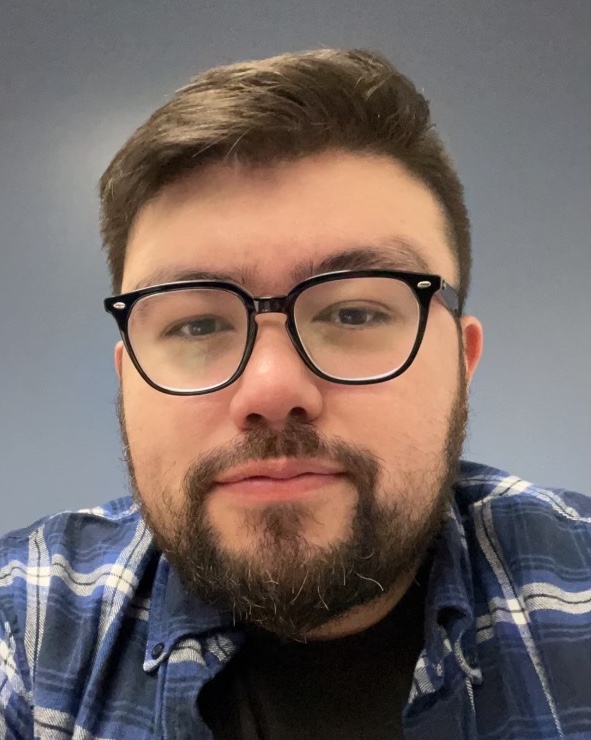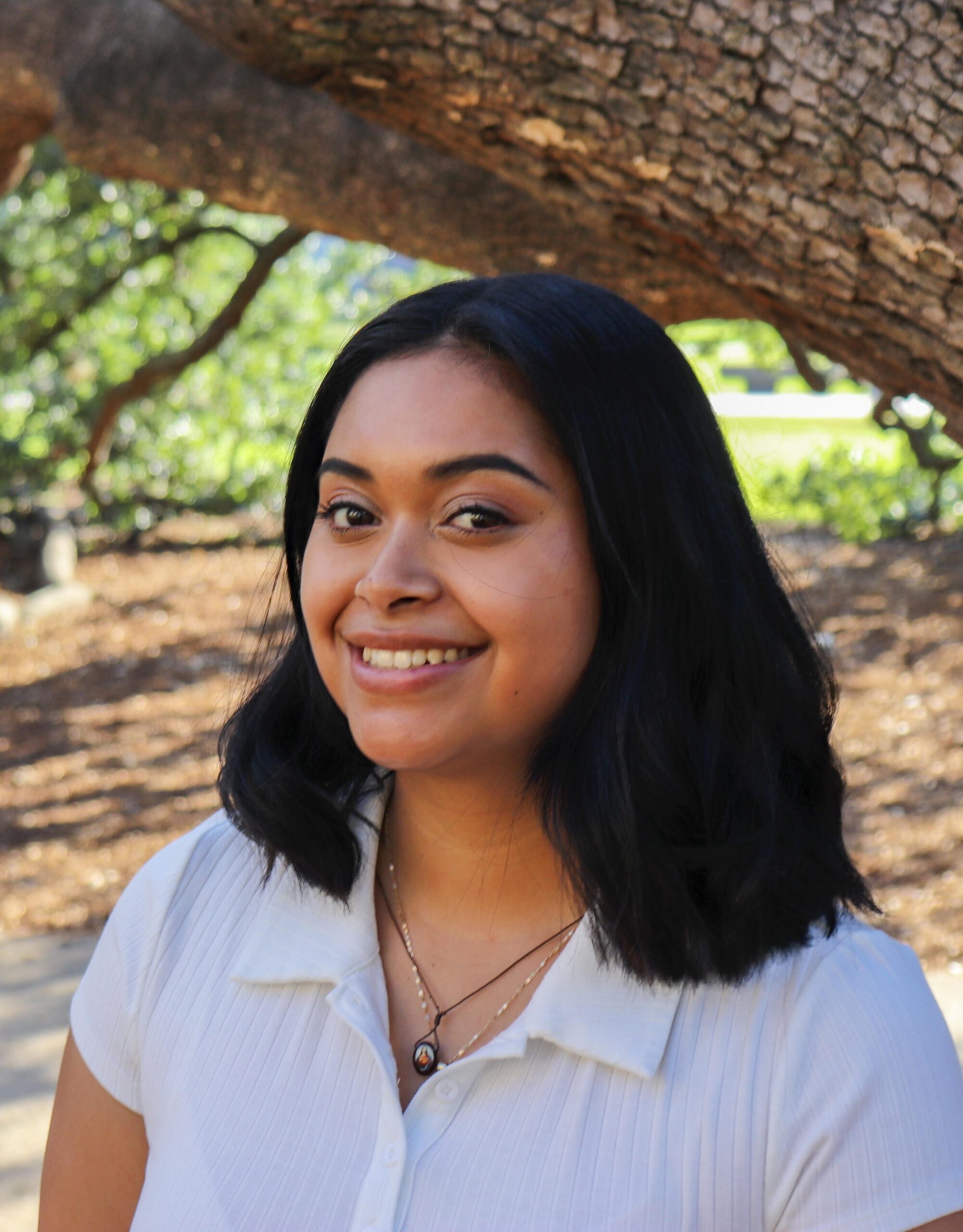Graduate Student Spotlight

Jordan Nixon '24 - Communication (MA)
Current M.A. Student at Texas A&M University
Can you share a brief overview of your current research project(s) and its significance in communications studies? What overarching goals or objectives drive your current research?
NowWe’reAPRBLEM takes the form of a community archive, a gallery, and an anthology entitled, We’reTheOnes. The anthology is a space within the gallery space within the archival space that the contributors and I are cultivating together. All of the work responds to the erasure of marginalized groups from public memory as well as memory spaces such as archives. The community archive is in and of itself a memory space, but this one is built both by and for womxn of color as well as those at the intersection of their marginalized identities. It is an opportunity for all of us to carve out space for ourselves and thus, our varied and complex existence.
The work spurred from questions about the nature and construction spaces entrusted to protect and preserve history, the desire to represent myself and those at the intersection of multiple marginalized identities, and the potential of doing so as well as the desire to challenge and explore silences and misrepresentation in the archives and associated memory spaces.
At the foundation of this project is intersectionality as both theory and praxis. As a theory, intersectionality reflects the connectivity between marginalized identities, oppression, and injustice. It orients us towards thinking about the materiality of said connectivity and how it manifests in the lived experiences of those at the intersection. As praxis, it is a demand that contributors, visitors/readers, and I look across identity groups (outside of our own) and make space to explore the uniqueness of our positionalities.
NowWe’reAPRBLEM, the community archive and gallery, as well as We’reTheOnes: An Anthology is an opportunity to centralize intersectionality as a field of thought but also as a response to injustice. It is a way for those of us at the intersection of our marginalized identities to connect, expand, and bend spaces that are only meant to serve parts of our full selves in hopes of ultimately creating spaces fit for ourselves and others.
In what ways do you believe your current research contributes to advancements or addresses challenges within your field?
NowWe’reAPRBLEM is an arts-based research project that calls on modalities such as video, photo, audio, and text as gateways for engagement with the work. While text is a foundational element, it is not the primary focus. Accessibility through multiple pathways for entry is essential to maximizing the scope and impact of our efforts.
That said, I have taken part in many conversations regarding barriers preventing those outside of academia from accessing research generated within the academy. During those conversations, I thought about those closest to me who do not have the time or energy to seek out or engage with this information. These conversations also brought to mind the subjects who aren’t able to access said research—linguistically or materially—after collection. The reality is that research is often inaccessible because of paywalls, language (i.e. jargon), and other structural barriers. I have made it my job to bridge the gap between the lived lives of participants/co-creators and knowledge production by creating spaces that amplify their words and centralize their stories and faces. This project is for them.
This project, and other work that I do, is grounded and will remain grounded in eliminating the aforementioned barriers. And at the end of the day, some people may not consider what I do to be “research," or rather a viable form of knowledge production. To those folks I say: the people who have contributed to these projects would beg to differ, as living requires knowledge packed with nuance that “viable” forms of research cannot touch.
How have the research environment and resources at Texas A&M supported or influenced the direction of your work?
Throughout my master’s journey, I was given the room to explore ideas both within and outside of coursework. The various interests and styles of my professors allowed me to create a bigger picture from bits of my experience. Over the last two years, I’ve had the opportunity to hear from/have taken classes with: Dr. George Villanueva, Space and Place & Multimodal Methods; Dr. Kristan Poirot, Rhetoric; Dr. Bryce Henson, Media, Identity, and Culture & Seminar in Media Studies; Dr. Tasha Dubrinwy, COMM and Gender; and Dr. Antonio La Pastina, Interpretive Methods and Audience Studies. In each course, I’ve also had the pleasure of learning from and connecting with peers who have challenged me in more ways than I can count. Shoutout to my people! All in all, each person and experience planted seeds that have bloomed and blossomed in NowI’mAPRBLEM: Part One and NowWe’reAPRBLEM. I am also a proud recipient of RESI’s Small Research Enhancement Grant.
Looking ahead, what are your aspirations for the future of your research? Are there specific areas or questions within your field that you hope to explore in your continued studies?
How does multimodality improve accessibility to knowledge? What are the possibilities of alternative knowledge production? What can this work do for those that are involved? Can it heal them, or rather can it give them space to heal themselves? How can the work that we have done become useful to those who didn’t have a hand in the work as creators but as spectators? How can it challenge notions of who and what matters? How can it build community and connection while simultaneously raising consciousness? What does it look like to make research accessible?
My hope is that this work will allow people at the margins and intersections to see themselves existing as dynamically and expansively as necessary for their growth and encourage them to write themselves into their own narratives.

Anthony Ramirez, Ph.D.'22 - Communication (Ph.D.)
Assistant Professor of Communication & Assistant Director of the Center for Latino Studies at the University of Houston-Downtown
What impact did your graduate experience at Texas A&M have on your professional trajectory?
“I made a lot of close friends and mentors who I keep in touch with to this day. Working with them taught me so much, including how to set up conferences and events, how to conduct multimodal projects and podcasts, and how to use innovative approaches in and out of the classroom, which have all helped me with my job as Assistant Professor and Assistant Director of the Center for Latino Studies. The experiences I gained from my mentors have really shaped who I am as a person, instructor, and mentor for my own students.”
What from your graduate experience at Texas A&M has equipped you to approach problem-solving and foster innovation within your professional career?
The expectations from my mentors were extremely high, and this helped me build so many skills that helped me to be quick on my feet with decision-making. Also, my mentors encouraged me to be creative with my work and teaching, which allowed me to approach my pedagogy innovatively.
What specific experiences or challenges from your graduate studies at Texas A&M do you find most directly applicable to your day-to-day work in your current professional role?
Time management and balancing out work and free time are all super important. One of the biggest things that happened to me while at TAMU was overworking and burning out, but I learned what my limits are from that experience. I tell a lot of my friends, colleagues, and even my students to learn what your limits are and rest when you need to. Work will always be there, so give yourself time to rest your mind, body, and soul. It is important to recharge.
As someone who has successfully transitioned from graduate studies to a professional career, what advice would you give to current graduate students about preparing for the transition to the professional world?
Trust the process. Your hard work will pay off and lead you where you are meant to be.
What advice would you give to someone considering graduate study at Texas A&M?
My first piece of advice is to find a research topic that you are passionate about and will want to do for the long haul. Second, be sure to build community with your colleagues and professors. It is important to build community with them. Third, do not be afraid to ask questions to your professors if you are unsure about something. Finally, make sure you choose the right mentor(s) for you. That makes a world of difference!

Arely Herrera '23 - Communication (MA)
Admissions Counselor for Diversity and Access at Christian Brothers University
What impact did your graduate experience at Texas A&M have on your professional trajectory?
My graduate experience at Texas A&M revealed to me that I wasn’t ready to commit to academia this early on at my age. Transitioning into a Master’s program instead provided me with a pathway to entering higher education in a more professional advisory role rather than a research-focused one. Teaching undergraduate level courses was really beneficial to my current work guiding prospective undergraduate students through the admissions process. Building relationships with my Public Speaking and Difficult Dialogues students was one of my top priorities. Although I’m not meeting with 25 students at once, that teaching experience strengthened my ability to build relationships with prospective students at Christian Brothers University.
What from your graduate experience at Texas A&M has equipped you to approach problem-solving and foster innovation within your professional career?
Having consistent discussions with my peers in PhD level classes taught me how to work with others as a team. Classes from the Media, Identity, and Culture program taught me how to integrate my identity as an artist and my identity as a critical thinker. Those experiences in particular were really beneficial to the development of my public (artistic) scholarship.
What specific experiences or challenges from your graduate studies at Texas A&M do you find most directly applicable to your day-to-day work in your current professional role?
My classes in Latinx Immigration and Intersectionality (Sociology) and Student Immigrant Experiences K-12 and Higher Ed (Education) have been most helpful to my current responsibilities. I work directly with the University’s partners Equal Chance for Education and TheDream.US to recruit and admit undocumented students. Those classes from my Latinx and Mexican American Studies Graduate Certificate provided me with the careful tools to engage with and guide prospective undocumented students.
As someone who has successfully transitioned from graduate studies to a professional career, what advice would you give to current graduate students about preparing for the transition to the professional world?
My advice would be to self-reflect. Ask yourself the tough questions in a way that isn’t self-critical but in a way that fosters empathetic understanding for yourself and those around you. Ask “Why am I here?” It’s something I consistently asked myself—not because I doubted my abilities but because I wanted to gauge my strengths. I self-reflected because I wanted to understand how my graduate experience would impact my growth both personally and professionally. Be patient and be welcoming of change.
What advice would you give to someone considering graduate study at Texas A&M?
If someone is considering graduate study at Texas A&M, I would advise them to do research on the campus and on College Station, Texas. Visit if you can so that you can imagine yourself there. College Station is a tough place to be if you’re used to something different so it’s incredibly important to visit. I would also advise them to reach out to the faculty. Although busy, they are often happy to talk with prospective students. Maybe even connect with current grad students if you’re able to. Connections are extremely important when you’re in a small town like College Station!
